What is calibration and why is it important? Calibration is the process of ensuring that a measuring instrument or device produces accurate ...
What is calibration and why is it important? Calibration is the process of ensuring that a measuring instrument or device produces accurate results. It is a crucial aspect of various industries and applications, as accurate measurements are essential for quality control, safety, on site calibration services and compliance with regulations. Understanding calibration and its significance is vital for achieving reliable and consistent results in various fields, from manufacturing and engineering to healthcare and environmental monitoring. In this article, we will explore the importance of accurate measurements and the role of calibration in achieving this goal.
Understanding calibration is crucial for ensuring accurate measurements in various industries and applications. Calibration is the process of comparing the measurements of an instrument or device to a known standard in order to determine and adjust any deviations. This is essential for maintaining the precision and reliability of instruments such as thermometers, scales, pressure gauges, and more. Accurate measurements are important in a wide range of fields, including engineering, manufacturing, healthcare, and environmental monitoring. Inaccurate measurements can lead to faulty products, compromised safety, and ineffective processes. Calibration helps to minimize the risk of errors and ensures that measurements are consistent and reliable. In addition to ensuring accurate measurements, calibration also provides traceability, which is the ability to track measurements back to a recognized standard. This is important for complying with industry regulations and calibration management services standards, as well as for maintaining the quality and credibility of the measurements. Overall, understanding calibration and the importance of accurate measurements is essential for ensuring the reliability, safety, and efficiency of various processes and systems. By regularly calibrating instruments and devices, organizations can maintain the integrity of their measurements and contribute to the overall quality of their products and services.
Understanding Calibration: A Critical Component of Precision Measurement
calibration scale services
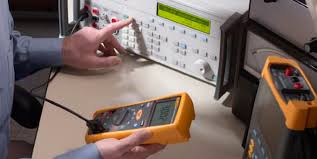
Understanding Calibration: A Critical Component of Precision Measurement is a comprehensive guide that delves into the importance of calibration in the field of measurement. The book discusses the various processes and tools involved in calibration, as well as the significance of maintaining accurate and reliable measuring instruments. It also provides practical tips and strategies for ensuring proper calibration practices, and highlights the potential consequences of neglecting this critical aspect of precision measurement. This resource is essential for professionals and students test equipment calibration services involved in fields such as engineering, manufacturing, and scientific research.
The Significance of Calibration in Ensuring Accuracy and Reliability
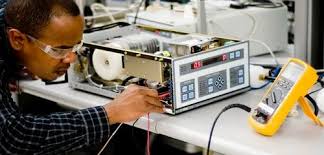
Calibration is the process of comparing measurements taken by a device to the known value of the measurement. It ensures that the device is providing accurate and reliable results. Calibration is crucial in a wide range of industries, including manufacturing, healthcare, and research. Without proper calibration, instruments and equipment can produce inaccurate or unreliable data, leading to potential safety hazards, product defects, and research errors. Overall, calibration plays a significant role in ensuring the accuracy and reliability of measurements, which is essential for quality control, safety compliance, and scientific integrity.
Calibration Demystified: The Importance in Various Industries
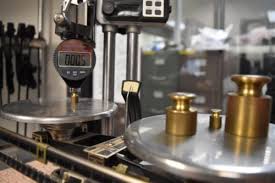
Calibration Demystified: The Importance in Various Industries is a comprehensive guide that delves into the significance of calibration in different sectors such as manufacturing, healthcare, automotive, and aerospace. It provides an in-depth understanding of the calibration process, its impact on product quality and safety, and its role in regulatory compliance. The book also offers practical insights and best practices for implementing effective calibration programs, making it a valuable resource for professionals in diverse industries.
Why Calibration is Essential for Instrumentation and Measurement Tools
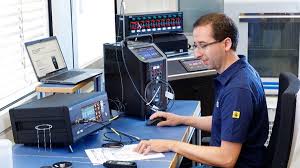
Calibration is essential for instrumentation and measurement tools to ensure accurate and reliable readings. Over time, instruments can drift and become less accurate, leading to incorrect measurements and potentially costly errors. Calibration involves comparing the readings of an instrument to known standards and making any necessary adjustments to ensure accuracy. Regular calibration also helps to identify any potential issues or problems with the instrument early on, allowing for maintenance or repairs to be performed before they become more serious. Ultimately, calibration is crucial for maintaining the quality and reliability of measurements taken with instrumentation and measurement tools.
The Impact of Proper Calibration on Quality Control and Assurance
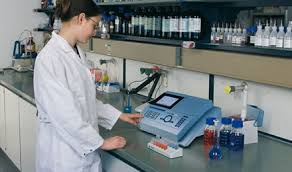
The proper calibration of equipment and instruments is essential for maintaining quality control and assurance in various industries such as manufacturing, healthcare, energy, and environmental monitoring. When equipment is accurately calibrated, it ensures that measurements and test results are reliable and consistently accurate. Calibration helps to minimize the risk of errors and ensures that products and processes meet required specifications and standards. It also reduces the likelihood of defective products, costly rework, and potential safety hazards. In addition, proper calibration is essential for complying with industry regulations and certifications. By investing in proper calibration processes, organizations can demonstrate their commitment to quality and reliability, enhance customer satisfaction, and maintain a competitive edge in the market. It also helps to avoid costly downtime and production delays, as well as potential legal and financial liabilities. Ultimately, the impact of proper calibration on quality control and assurance cannot be overstated. It is a critical component of ensuring that products and services meet the highest standards of quality, safety, and performance.
Calibration: The Key to Consistent and Accurate Data Collection
Calibration is the process of adjusting and testing equipment to ensure that it is functioning accurately and consistently. This is essential for data collection, as it ensures that the measurements and readings obtained are reliable and can be consistently replicated. Without proper calibration, there is a risk of inaccurate data, which can lead to faulty conclusions and decisions. Calibration is particularly important in scientific research, manufacturing, and quality control processes where precision and accuracy are critical. Regular calibration of equipment such as scales, thermometers, and measuring instruments is necessary to maintain the reliability of data collected. It is also important to follow standardized calibration procedures and keep detailed records to track the performance of equipment over time. Overall, calibration is the key to consistent and accurate data collection across various fields and industries.
Unveiling the Crucial Role of Calibration in Scientific Research and Experimentation
Calibration is a fundamental step in scientific research and experimentation, playing a crucial role in ensuring the accuracy and reliability of measurements. It involves comparing the output of a measurement instrument to a known reference value and making adjustments if there are discrepancies. This process is essential for maintaining the integrity of scientific data and results. Without accurate calibration, the validity of research findings can be called into question. In fields such as physics, chemistry, and engineering, where precise measurements are essential, calibration is an indispensable component of the experimental process. Furthermore, calibrated instruments are also essential for adhering to regulatory standards and ensuring the safety of products and processes in various industries. Overall, the role of calibration in scientific research and experimentation cannot be overstated, as it underpins the credibility and accuracy of scientific endeavors.
The Necessity of Calibration for Safety and Compliance in Industrial Settings
Calibration is essential for safety and compliance in industrial settings. It ensures that equipment and instruments are functioning accurately and reliably, which is critical for maintaining a safe working environment and adhering to regulatory standards. Properly calibrated equipment reduces the risk of accidents and injuries by providing accurate measurements and data. This is particularly crucial in industries such as manufacturing, oil and gas, and construction, where the use of faulty equipment can have serious consequences. In addition, calibration is necessary for regulatory compliance. Many industries are subject to strict regulations and standards, and calibrated equipment is often a requirement for meeting these compliance measures. Failing to calibrate equipment can result in fines, legal liabilities, and reputational damage for companies. Overall, calibration plays a vital role in ensuring the safety of workers and the public, as well as in maintaining legal compliance within industrial settings. As such, it is a key component of risk management and operational excellence for businesses in these sectors.
Ensuring Precision and Confidence through Proper Calibration Practices
Ensuring precision and confidence through proper calibration practices involves carefully following industry standards and procedures to regularly check and adjust instruments and equipment. This process helps to maintain the accuracy of measurements and data, ultimately leading to reliable results and confident decision-making. Calibration practices also play a crucial role in meeting regulatory requirements and quality assurance standards in various fields, including manufacturing, healthcare, and environmental monitoring. By adhering to proper calibration practices, organizations can avoid costly errors, improve product quality, and enhance overall efficiency.
The Foundation of Efficiency: The Role of Calibration in Engineering and Technology
The Foundation of Efficiency: The Role of Calibration in Engineering and Technology discusses the importance of calibration in ensuring the accuracy and reliability of equipment and instruments used in various engineering and technological applications. The article explores the role of calibration in achieving efficiency, precision, and standardization in measurements and processes. It also highlights the significance of adhering to calibration standards and best practices in maintaining the quality of engineering and technological systems. Additionally, the article may delve into the various methods and technologies used in calibration processes, as well as the potential implications of inadequate calibration on the overall performance and safety of engineering and technological systems.

ليست هناك تعليقات